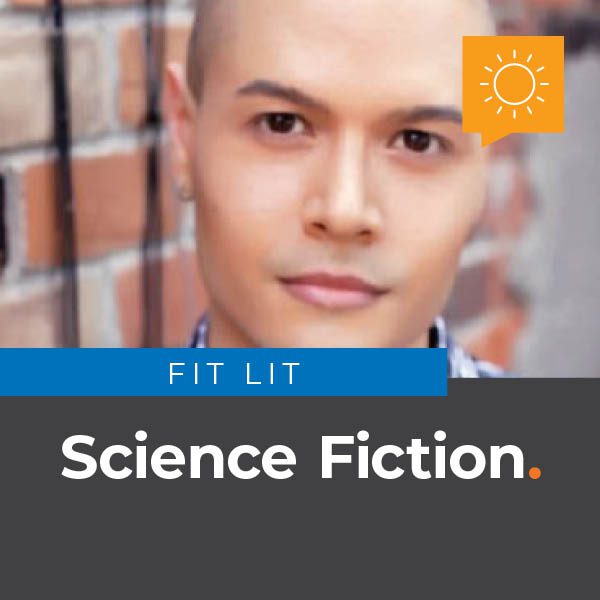
By Christian Adrian Brown
Body, Mind and Quill
ABOUT THE COLUMNIST
Quadragenarian fitness model, lifestyle coach and bestselling author of the critically acclaimed Feast of Fates, Christian A. Brown received a Kirkus star in 2014 for the first novel in his genrechanging Four Feasts till Darkness series. He has appeared on Newstalk 1010, AM640, Daytime Rogers, and Get Bold Today with LeGrande Green. He actively writes and speaks about his mother’s journey with cancer and on gender issues in the media.
When it comes to predicting the future, it’s not the soothsayers and crystal-ball readers who come out on top, it’s the Science Fiction writers. From Asimov to Clarke, writers have cast their imaginations wide, extrapolated realities from current scientific probabilities, and in most instances been correct in the advancements and changes our societies will face. As someone interested in personal evolution and growth, I’m directly invested in these books and their material. There are, however, authors with more accurate foresight than others.
The departed Ian M. Banks posits a curious and far-off future with his grand series of books, presenting a reality where humanity has conquered the stars in co-operation with—though in truth ruled by—supreme AI intelligence. What’s so interesting about his series is that we’ve repeatedly seen the doomsday version of AI’s evolution, such as the Terminator series, where computers have efficiently evolved and see mankind as a hindrance, threat or nuisance to be eliminated, though we’ve rarely seen the benevolent end of that fantasy.
This is how Banks presents these kindly overlords: as the gatekeepers of life, as gentle curators to the lesser creatures that are human—no matter how far we have evolved and grown in the future, we still cannot keep up with the quantum evolutionary leaps in thought by the AI who rule us.
Indeed, in this future, mankind has been quelled of the worst of their vices, sorrows and desperate wants. We live in relative pleasure and happiness, and things such as suicide, murder and war are universally appalling, reviled far beyond how we behave toward atrocities in today’s society: with casual indifference, “not-in-my-backyardism” and willful participation or ignorance. Of course, Banks explores this darker matter, and a lot of his books end like Greek tragedies, but one can argue that it’s because of humanity’s state of nirvana that these events are all the more sad, grisly and impactful. We should not be seeing humans treating each other with such contempt and he’s created the perfect stark white canvas upon which these splashes of red violence are made explicitly jarring. Still, the underlying message is that these atrocities are exceptions to what life offers, as they should ideally be in our age, too.
Dystopian Science Fiction and its writers seem to have accurately predicted the corporatocracy into which we are currently sliding, and I hope it doesn’t end as some of its darkest prognosticators have written: the loss of personal autonomy, the bombardment of our culture by corporate interests, human beings reduced to barcodes and marketing categories. I’d like to take the more optimistic angle here, too, and believe that we can maintain sovereignty while using technology to enrich our lives. I think that we first have huge strides to make against decentralizing the power from big tech, and curbing our social media addiction into a manageable habit that makes these tools work for us instead of enslaves us to them.
And I guess that’s where I’d advocate for us to proceed cautiously but with anticipation into the great and still somewhat predicted—by Science Fiction—unknown. We must ensure that whatever version of the future emerges, technology is tied to us in a symbiotic and not parasitic way. We must ensure that our mental health and identities are preserved, and that our connection to nature and a dedication to its preservation also endure.
We must never forget what makes us human: humility, kindness and compassion. Perhaps we can instill these traits into our AI and devices, since they’re so much more competent at perfection than we.
—C

Continue Reading…
Article originally Published in the June / July 2021 Issue “Futuristic”
